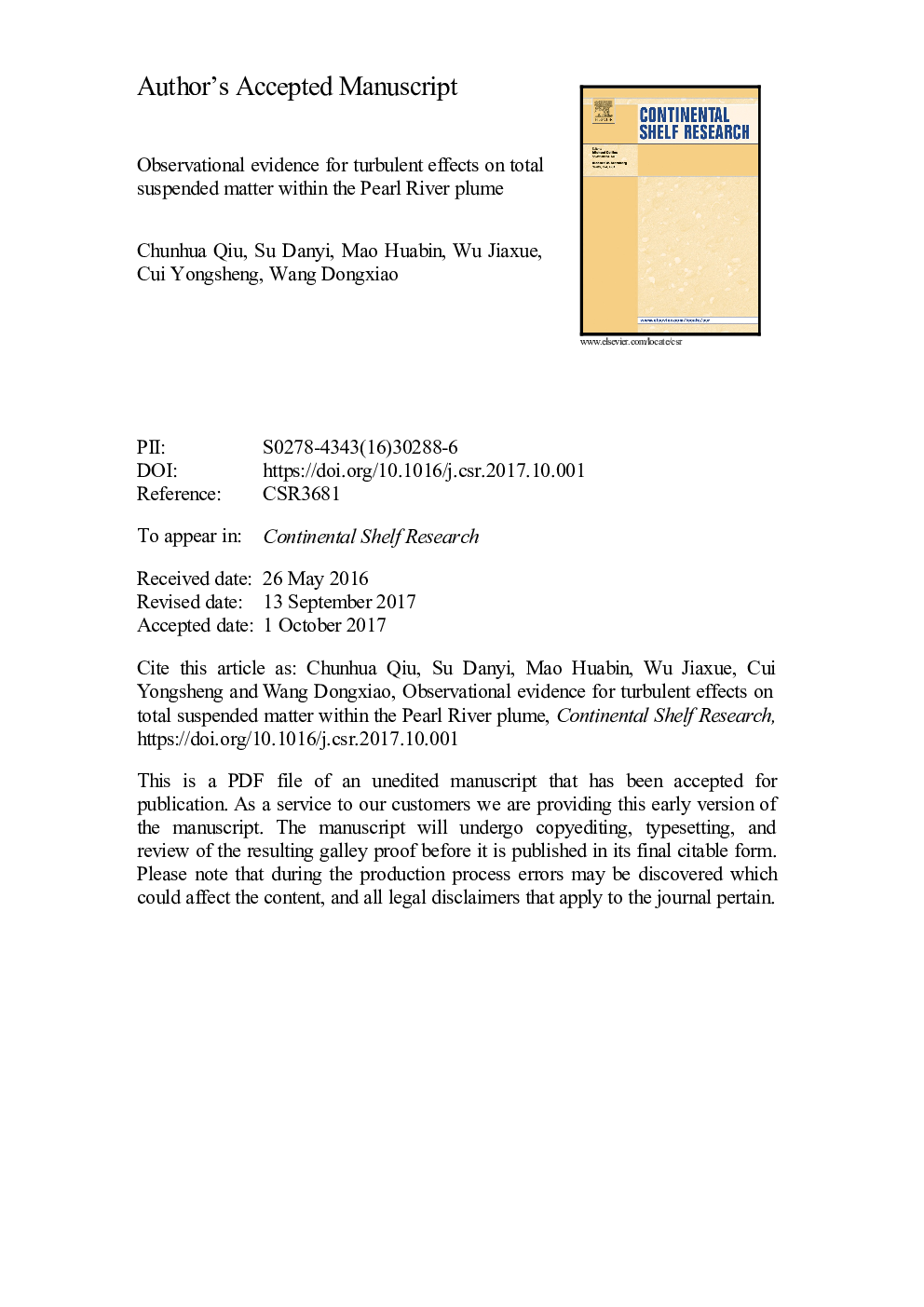| Article ID | Journal | Published Year | Pages | File Type |
|---|---|---|---|---|
| 8884122 | Continental Shelf Research | 2017 | 32 Pages |
Abstract
We observed the structure of the Pearl River plume and its turbulent characteristics, and investigated the turbulent effect on total suspended matter (TSM) within its “far-field” region, based on in situ and satellite data collected in June 2015. A significant northeastward plume was created under southern monsoonal conditions. The in situ data provided the width, depth, and velocity of the plume, as inferred by salinity. Weaker turbulence occurred at the front surface position than in the plume zone. Stronger turbulence induced greater turbidity in the bottom boundary layer; however, the surface mixed layer differed. By estimating the turbidity budget, we found the lateral fluxes term was the largest term in the plume, turbulent fluxes comprised the second largest term, and the settling terms comprised the smallest term. We quantified the turbulent mechanisms and found that stronger river discharge induced greater TSM turbidity. Tidal and buoyancy fluxes had minor regulatory effects on TSM. Our observations suggest that TSM in the “far field” region originated from the Pearl River and the coastal region.
Related Topics
Physical Sciences and Engineering
Earth and Planetary Sciences
Geology
Authors
Qiu Chunhua, Su Danyi, Mao Huabin, Wu Jiaxue, Cui Yongsheng, Wang Dongxiao,
